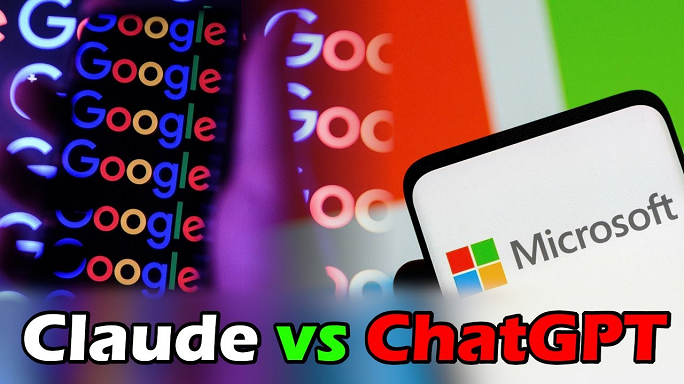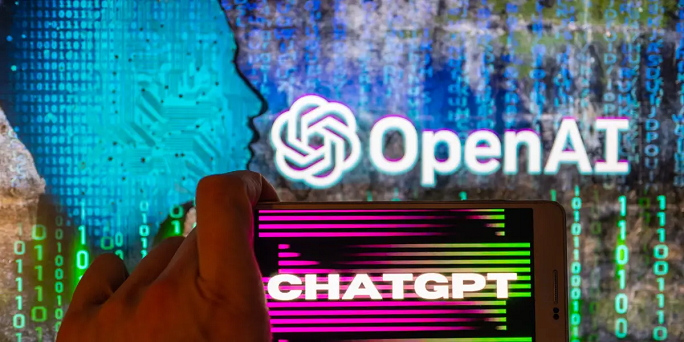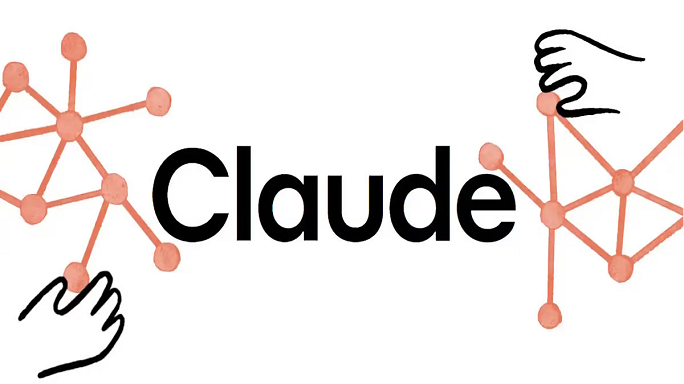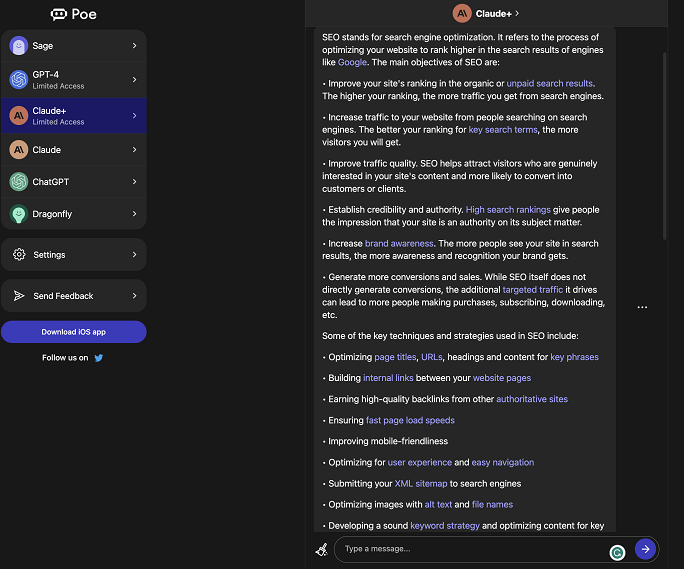ChatGPT Vs Claude: Who Will Take Over The AI World?

Which Chatbot Is Better ChatGPT Or Claude?
In a world where artificial intelligence reigns supreme, two formidable contenders step into the arena, ready to battle for the ultimate prize: ChatGPT vs Claude.
Since they’re both pushing themselves towards the boundaries of AI innovation, you may burn with curiosity to know who will claim the coveted throne in the race to conquer the AI world.
We’re going to show you an electrifying showdown between these two language models as they go head-to-head.
What Is ChatGPT?
Unlike other chatbots and NLP systems, ChatGPT possesses an unparalleled talent for engaging in ultra-realistic conversations. It effortlessly generates articles, fictional stories, poems, and even computer code, showcasing its versatility.
Furthermore, ChatGPT goes beyond providing simple answers, often delivering detailed responses to highly specific questions and inquiries.
What truly sets ChatGPT apart is its ability to mimic human-like conversational skills with remarkable precision. It skillfully asks follow-up questions, admits mistakes, and expertly points out nuances about a given topic.
Engaging with ChatGPT can be an astonishing experience, as its responses are so well-crafted that it becomes nearly impossible to discern whether one is interacting with a human or a computer-generated bot.
Grammatical and syntax errors are exceedingly rare, while its written constructions exhibit logical coherence and articulate expression. Prepare to be captivated by ChatGPT's extraordinary conversational prowess.
What Is Claude?
Claude by Anthropic is an advanced language model (LLM) capable of generating text, coding, and functioning as an AI assistant similar to ChatGPT.
Developed through Anthropic's extensive research on creating beneficial, truthful, and non-threatening AI systems, Claude represents the next generation of AI assistants.
Anthropic, founded by former executives of OpenAI, Daniela Amodei and Dario, enjoys the support of Alphabet, the parent company of Google. This backing has provided a strong foundation for the company's endeavors.
One of Claude AI's remarkable abilities is its capacity to handle unpleasant, harmful, and malicious queries and inputs. It achieves this by clearly expressing its objections to such content, ensuring users need not worry about encountering harmful or malicious outcomes. Additionally, Claude encompasses a wide range of features and capabilities, including writing assistance, code generation, question and answer functionality, creativity, and more.
ChatGPT Vs Claude: A Quick Look
|
Claude |
ChatGPT |
|
|
Parent company |
Anthropic (backed by Google) |
OpenAI (backed by Microsoft) |
|
Release date |
March 14th 2023 |
November 30th 2022 |
|
Technology used |
Constitutional AI |
GPT-3.5 and GPT-4 |
|
Calculations |
Average |
Good |
|
Visual abilities |
No |
Yes |
|
Writing style |
Natural |
Creative |
|
Humor |
Funnier |
Dad jokes |
|
Text summarization |
Good |
Good |
|
Code generation |
Incapable of complex algorithms and codes |
Can generate more complex code |
|
Database |
Narrower data sets |
Large |
ChatGPT Vs Claude: An In-Depth Comparison
Features

ChatGPT Can Help You With Almost Any Daily Task
GPT, short for Generative Pre-trained Transformer, represents an advanced form of artificial intelligence (AI).
GPT4, a version of this technology, utilizes a neural network machine learning model trained on an extensive dataset collected from the internet, enabling it to simulate human thought.
OpenAI developed ChatGPT, an AI-powered language model that was extensively trained on vast amounts of text data.
Its primary purpose is to generate text responses that closely resemble human-like communication. ChatGPT excels in answering questions, engaging in conversations on various topics, and even producing creative written pieces.
GPT4 surpasses the capabilities of a typical chatbot, functioning as a powerful generative AI application. It can generate documents, articles, and offer problem-solving capabilities.
Additionally, GPT4 employs multimodal language AI models to interpret images, enabling it to create websites based on sketches and suggest recipes by analyzing photos of ingredients in a fridge or on a countertop.
Claude, an AI assistant developed by Anthropic, is accessible through a chat interface or API. It excels in conversational and text processing tasks, serving a range of use cases including summarization, search, creative and collaborative writing, question formulation, and basic coding.
Claude offers prompt responses to customer service requests and can seamlessly transfer tasks to a human operator when necessary.
It particularly excels in editing, rewriting, summarizing, classifying, and extracting structured data.
Furthermore, Claude demonstrates the ability to follow basic instructions and logical scenarios, analyze strategic risks and opportunities using annual reports, assess the pros and cons of legislation, and identify risks in legal documents.
Result: ChatGPT wins.
Chatbot Functions
GPT4 finds extensive application in chatbot systems, automating customer service, addressing frequently asked questions, and engaging in user conversations.
Its conversational abilities draw from a vast collection of online texts, including news articles, novels, websites, and more.
The overall performance of GPT4 is commendable, as it excels in information analysis, evaluating online behaviors, and even providing product recommendations to support online sales and upselling processes.
Its automation features extend to tasks such as appointment scheduling, reservations, payment processing, inquiries regarding shipping schedules, order tracking, product returns, and availability of products and services, all achieved with a high level of accuracy.
On the other hand, Claude can be regarded as a more specialized chatbot compared to GPT4. It can be customized to cater to specific use cases and data sets, such as customer service, legal operations, back-office functions, and sales.
Additionally, Claude can be trained to recognize instances where tasks should be handed off to a human operator.
Users have the ability to define the data set for analysis, summarization, or contextual understanding within Claude. It can respond in a conversational manner, supporting a variety of common languages as well as programming languages.
However, unlike GPT4, Claude does not directly search the internet. Users can input text from the internet and request Claude to perform tasks using that content.
Result: ChatGPT wins on larger use cases, while Claude wins on narrower ones.
Accuracy

Similar To ChatGPT Claude Is Also Susceptible To Errors
While GPT4 generally provides accurate responses, it can occasionally be prone to errors due to outdated data.
There have been instances where GPT4 generated peculiar or incorrect answers to queries. However, each new version of GPT4 shows improvement over its predecessors.
GPT4 introduced a higher level of accuracy compared to previous versions. OpenAI claims that GPT4 is 82% less likely than ChatGPT to generate content that OpenAI prohibits, and 60% less likely to fabricate answers.
Nonetheless, it's important to note that GPT4 is not infallible, including in coding tasks. It is always advisable to verify its programming outputs using human oversight.
You may also have this question, are ChatGPT essays detectable? There are certain factors making ChatGPT texts distinguishable, and one of those is incorrect information.
Claude, like GPT4, is also susceptible to errors. However, some argue that Claude excels in answering queries due to its narrower data set, particularly in subjects like history, geography, and entertainment.
One significant distinction between Claude and GPT4 is that Claude has the capability to acknowledge when it doesn't possess the answer. However, Claude may not perform as well as GPT4 in calculations, complex mathematics, and coding proficiency.
Result: Draw
Integration
GPT comes out of the open source community. It can be plugged into other applications to generate responses via an API.
ChatGPT plugins are becoming available, including those for the likes of Kayak, Expedia, OpenTable, Slack and Shopify with more on the way. It is also integrated with a lot of different programming languages.
Claude has done a good job of developing partners, too. They include Notion, Quora, DuckDuckGo, Slack and Zoom. Watch out for tighter Google integration going forward, too. Claude can integrate with a wide range of apps via API.
The Claude App for Slack can summarize threads and answer questions. For Zoom, Claude is being integrated into Zoom contact center, meetings, phone, team chat, whiteboard, and Zoom IQ.
Result: Claude performs a bit better.
Security
Until now, GPT4 has not received significant focus on security measures. Developers utilizing GPT4 are responsible for incorporating their own security features to ensure the system's security.
On the other hand, Claude adopts industry-standard best practices for data handling and retention, prioritizing robust security protocols.
Result: Claude wins.
Pricing

Claude's Light Version Is Faster And Less Expensive
GPT4 offers a basic version that is available for free, while the main subscription option, ChatGPT Plus, comes at a monthly cost of approximately $20.
Subscribers to ChatGPT Plus enjoy benefits such as access to ChatGPT during peak times, faster response times, and priority access to new features and improvements.
In addition to the basic subscription, GPT4 follows a pricing scale based on the number of tokens used (where 1,000 tokens correspond to roughly 750 words of content).
The cost ranges from 3 cents to 6 cents per 1,000 tokens for prompts, and an additional 6 cents to 12 cents per 1,000 tokens for completed responses. Opting for the higher rate provides access to a larger contextual data set.
Claude offers two versions: Claude Instant and Claude (the high-performance version). Claude Instant is a more lightweight and cost-effective option, delivering faster results.
On the other hand, the fuller version of Claude excels in handling complex dialogues, generating creative content, and following detailed instructions.
For pricing, Claude Instant is priced at $1.63 per million tokens for prompts and $5.51 per million tokens for completed responses.
The fuller version of Claude costs $11.02 per million tokens for prompts and $32.68 per million tokens for completed responses. To provide context, 100,000 tokens roughly equate to around 70,000 words or six hours of audio.
Result: ChatGPT wins.
Conclusion: Which AI Chatbot OutPerforms?
GPT4 uses a transformer-based architecture as part of a neural network that handles sequential data.
Although the data it draws from may be a little dated at times, GPT4 seems to perform OK in coding, and does a very good job on chat, language translation, answering questions, understanding images, and can even determine why a joke is funny.
Claude, on the other hand, favors Google. It is less comprehensive than GPT4 but can respond without searching the internet.
It does a good job of digesting, summarizing and explaining financial documents and research papers.
It may sometimes assess its own ability or memory incorrectly, make up information, and make errors in complicated arithmetic. But GPT4 makes errors, too.
Claude is very much a work in progress, so it is probably unfair to compare it to GPT4 right now as it is not long in the market. Give it a few months and we’ll see how far it comes. But for now, GPT4 does a better job
